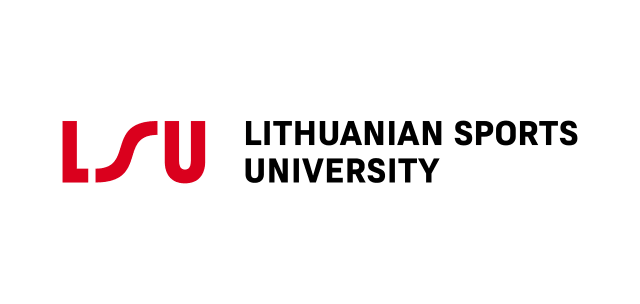Bachelor in Sports Coaching
Kaunas, Lithuania
Bachelor's degree
DURATION
4 years
LANGUAGES
English
PACE
Full time
APPLICATION DEADLINE
EARLIEST START DATE
TUITION FEES
EUR 5,400 / per year *

STUDY FORMAT
On-Campus
* fees are subject to change
Key Summary
The idea of a physically and spiritually perfect individual has captivated humanity since ancient times. Perhaps this is why sports, as a social phenomenon, have been an integral part of human life since antiquity. It may be hard to believe, but historical evidence shows that renowned ancient Greek philosophers such as Pythagoras, Socrates, and Plato not only advocated for sports but were also Olympians themselves. They deeply believed that sports played a vital role in enhancing intellectual pursuits.
In modern society, the realm of sports holds significant social, cultural, economic, and political importance. In progressive nations, it is well-established that a country's development is reflected not only in the achievements of professional athletes but also in the general population's attitude toward sports. The number of actively engaged citizens and their accomplishments depend on the expertise of professional coaches. Today, we are familiar with the names of celebrated athletes and their coaches, we follow their victories, and they become our heroes.
If you are passionate about sports and aspire to become a professional coach, choose the Training Systems program at Lithuanian Sports University. With 90 years of experience in training sports professionals, Lithuanian Sports University has built a reputation for excellence. Its graduates thrive in the world of competitive sports, making an impact in various countries around the globe.
Upon completing this program, you will earn a Bachelor’s degree in Sports and a coaching qualification. For over 10 years, this program has received high praise from international experts and, in 2024, was awarded the International Council for Coaching Excellence (ICCE) quality certificate, recognizing its full compliance with international coaching education standards. The curriculum is grounded in cutting-edge international sports science, equipping you with the knowledge and skills necessary for successful coaching of children, youth, and adult athletes in competitive sports.
Program Goal: To prepare university-level sports professionals by leveraging advancements in fundamental and applied interdisciplinary sciences. Graduates gain the expertise required for effective coaching and related fields in athlete development.
Program Objectives The program aims to prepare university-level sports coaches by integrating cutting-edge interdisciplinary science and technology. Students will acquire the knowledge and skills necessary for working in various areas of athlete training.
Program Content (Brief Overview)
The program consists of 240 credits, covering the following modules:
- General University Studies (15 credits):
Critical Thinking and Academic Communication, Social and Psychological Well-being, Olympic Movement and Sports Ethics. - Core Study Modules (160 credits):
- Biomedical Sciences: Functional Anatomy, Applied Kinesiology, Biochemistry and Nutrition (including Sports Nutrition and Anti-Doping), Sports and Exercise Physiology, Sports Biomechanics, Sports Medicine and First Aid, Motor Control and Learning.
- Pedagogy and Psychology: Sports Pedagogy and Psychology, Special Education and Psychology.
- Sports Didactics and Technologies: Didactics of Track and Field, Gymnastics, Swimming, Movement Games, Sports Games, Athlete Preparation Technologies, and Theory, Didactics, and Practice in Selected Sports (e.g., strength and conditioning, boxing, judo, basketball, swimming, sports dancing, handball, aerobic gymnastics, baseball, rugby, sports for the disabled, volleyball, modern pentathlon).
- Research and Management: Research Methodology, Fundamentals of Sport Computerization, Basics of Sports Management, Entrepreneurship, and Law.
- Practical Training (25 credits): Conducted in sports schools and clubs.
- Elective Modules (25 credits): Students can select from a variety of optional modules, including a second sport specialization or physical education teacher training.
- Final Thesis (15 credits): Culminates the program.
Program Objectives and Goals
The program aims to prepare university-level sports professionals by leveraging international advancements in fundamental and applied interdisciplinary sciences. The curriculum equips students with skills in sports didactics and techniques, competition organization, athlete evaluation, and the design of long-term training programs. Graduates will be capable of coaching athletes of all ages and skill levels, from beginners to elite competitors.
Career Opportunities
Graduates with a Bachelor’s degree in Sports can pursue careers as sports coaches in schools, clubs, wellness centers, or as personal trainers. They can also work as informal education teachers in general education schools, vocational schools, colleges, and supplementary education institutions, as well as in public, private, or non-governmental sports organizations.
Further Study Opportunities: Graduates may continue to master’s programs in fields such as Coaching Systems, Tourism and Sports Management, Sports Psychology, Education, Physical Education, Sports Physiology, Applied Physical Activity, Health and Physical Activity, or other life, biomedical, and social sciences in Lithuania or abroad.
Why Choose This Program?
- International Opportunities: Recognized worldwide, including the EU and many other countries.
- Erasmus Mobility: Study for up to two semesters or complete a 3-month internship at partner universities across Europe through the Erasmus exchange program.
- BIP Programs: Opportunities to participate in Blended Intensive Programs with partner universities.
The Training Systems program at Lithuanian Sports University is one of the most popular study choices in Lithuania, known for its unique approach and high quality.
Topics
- Governance
- Rules and Regulations
- Techniques and Tactics
- Athletes' Capabilities and Stages of Development
- Growth and Development
- Medicine
- Nutrition
- Sports Biomechanics
- Physiology, Psychology, and Sociology
- Coaching Methodology
- Coaching Philosophy
- Monitoring Training Process
Competences
- Extensive knowledge of caching technologies.
- To guide improvement on a sustained basis and understand the needs and progress of the athletes with whom they work.
- To set the vision and strategy (short-term, mid-term and long-term planning of sessions, seasons and programmes).
- To build and maintain relationships with athletes, other coaches, support team and other people related to the program.
- To evaluate the program and identify strengths to build on weaknesses to address.
- To be an innovative practitioner.
Career Opportunities
A Bachelor diploma provides the qualification to work in sports clubs, to work as a teacher of informal education at secondary schools, colleges, public and private sports organizations.


